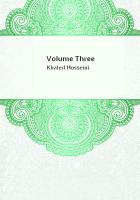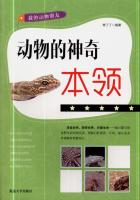II. ADAM SMITH 1. Smith's General Points of View Adam Smith says in Book I, Ch. 6, page 42: "In every society the price of every commodity finally resolves itself into some one or other, or all of those three parts (wages, profit, rent); and in every improved society, all the three enter more or less, as component parts, into the price of the far greater part of commodities." [38] Or, as he continues, page 63: "Wages, profit, and rent, are the three original sources of all revenue as well as of all exchangeable value ."Below we shall discuss in greater detail this doctrine of Adam Smith concerning "the component parts of the price of commodities," or of "all exchangeable value."He says furthermore: "Since this is the case, it has been observed, with regard to every particular commodity, taken separately; it must be so with regard to all the commodities which compose the whole annual produce of the land and labour of every country, taken complexly. The whole price or exchangeable value of that annual produce, must resolve itself into the same three parts, and be parcelled out among the different inhabitants of the country, either as the wages of their labour, the profits of their stock, or the rent of their land. (Book II, Ch. 2, p. 190.)After Adam Smith has thus resolved the price of all commodities individually, as well as "the whole price or exchangeable value ... of the annual produce of the land and labour of every country," into wages, profit and rent, the three sources of revenue for wage-labourers, capitalists, and landowners, he must needs smuggle in a fourth element by circuitous route, namely the element of capital. This is accomplished by drawing a distinction between gross and net revenue: "The gross revenue of all the inhabitants of a great country comprehends the whole annual produce of their land and labour; the neat revenue, what remains free to them after deducting the expense of maintaining ; first, their fixed ; and secondly, their circulating capital ; or what, without encroaching upon their capital, they can place in their stock reserved for immediate consumption, or spend upon their subsistence, conveniences, and amusements.
Their real wealth too is in proportion, not to their gross, but to their neat revenue." ( Ibid ., p. 190.)On this we comment as follows:
1) Adam Smith expressly deals here only with simple reproduction, not reproduction on an extended scale, or accumulation. He speaks only of expenses for "maintaining" the capital in operation. The "neat" income is equal to that portion of the annual product, whether of society or of the individual capitalist, which can pass into the "fund for consumption," but the size of this fund must not "encroach upon capital" in operation. One portion of the value of both the individual and the social product, then, is resolved neither into wages nor into profit nor into rent, but into capital.
2) Adam Smith flees from his own theory by means of a play upon words, the distinction between "gross and neat revenue." The individual capitalist as well as the entire capitalist class, or the so-called nation, receive in place of the capital consumed in production a commodity-product whose value -- it can be represented by the proportional parts of this product -- replaces on the one hand the expended capital-value and thus forms an income, or still more literally, revenue ( revenue , pp. of revenir -- to come back), but, nota bene , a revenue upon capital, or income upon capital; on the other hand components of value which are "parcelled out among the different inhabitants of the country, either as the wages of their labour, the profits of their stock, or the rent of their land"a thing commonly called income. Hence the value of the entire product constitutes somebody's income -- either of the individual capitalist or of the whole country, but it is on the one hand an income upon capital, and on the other a "revenue" different from the latter. Consequently, the thing which is eliminated in the analysis of the value of the commodity into its component parts is brought back through a side door -- the ambiguity of the word "revenue." But only such value constituents of the product can be "taken in" as already exist in it. If the capital is to come in as revenue, capital must first have been expended.
Adam Smith says furthermore: "The lowest ordinary rate of profit must always be something more than what is sufficient to compensate the occasional losses to which every employment of stock is exposed. It is this surplus only which is neat or clear profit." [What capitalist understands by profit, necessary expenditure of capital?] "What is called gross profit comprehends frequently, not only this surplus, but what is retained for compensating such extraordinary losses." (Book I, Ch. 9, p. 72.) This means nothing else than that a part of the surplus-value, considered as a part of the gross profit, must form an insurance-fund for the production. This insurance-fund is created by a portion of the surplus-labour, which to that extent produces capital directly, that is to say, the fund intended for reproduction. As regards the expense for "maintaining" the fixed capital, etc. (see the above quotations), the replacement of the consumed fixed capital by a new one is not a new outlay of capital, but only a renewal of the old capital-value in new form. And as far as the repair of the fixed capital is concerned, which Adam Smith counts likewise among the costs of maintenance, this expense goes in with the price of the capital advance. The fact that the capitalist, instead of having to invest this all at one time invests it gradually, as required, during the functioning of the capital, and can invest it out of profits already pocketed, does not change the source of this profit.
The value constituent of which it consists proves only that the labourer delivers surplus-labour for the insurance-fund as well as for the repair fund.















